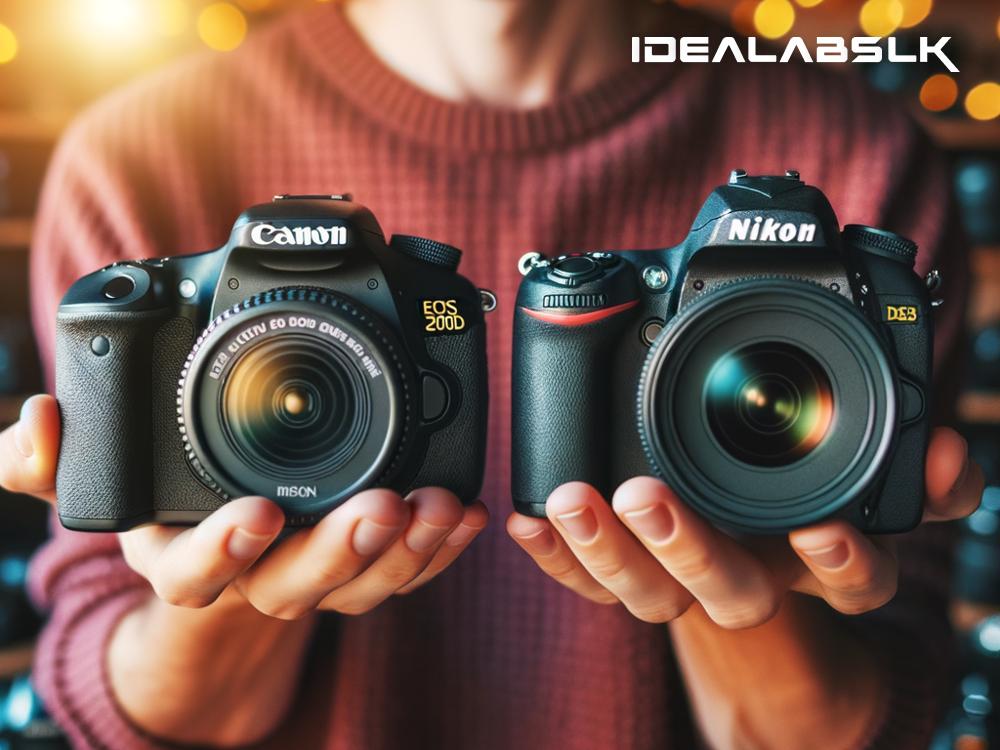Canon EOS 2000D vs. Nikon D3500: Affordable DSLR Cameras for Beginners
If you're starting on your photography journey, picking the right camera can feel like dating—exciting but slightly intimidating. You want something that will love you back by making your memories look stunning. In the world of starting DSLR cameras, two names pop up quite often: the Canon EOS 2000D and the Nikon D3500. Let's dive into a friendly comparison to see which of these might be your perfect match.
Picture Quality
Both the Canon EOS 2000D and Nikon D3500 come equipped with the essentials for capturing beautiful photos. The 2000D sports a 24.1-megapixel sensor, while the D3500 isn't far behind with 24.2 megapixels. Essentially, they're neck-and-neck in this race, promising crisp, detailed images that will make your Instagram or family album pop.
Feel and Comfort
Holding a DSLR for the first time can be like holding someone's hand—it needs to feel right. The Nikon D3500 is known for its lightweight body and comfortable grip, making it a tad easier on the wrists during long photography sessions. The Canon 2000D, while slightly heftier, also has an ergonomic design that feels secure and manageable in your hands. Comfort is subjective, so it's worth trying both to see which feels like a better fit.
User Experience
Walking into the world of DSLRs could be overwhelming, but both Canon and Nikon have tried to ease the path. The Canon EOS 2000D boasts a straightforward interface with features like Scene Intelligent Auto mode, guiding beginners through settings adjustments. Nikon's D3500 answers with its intuitive design and a helpful Guide Mode that acts like a built-in photography tutor.
Battery Life
In the marathon of photography, you don't want to run out of juice at mile one. Here, the Nikon D3500 shines with an impressive battery life that supports around 1,550 shots per charge. The Canon EOS 2000D, while not lagging too far behind, offers about 500 shots per charge. If you're planning days-long expeditions into the wild without a power outlet in sight, these figures matter.
Lenses and Accessories
Entering DSLR territory opens up a world of accessories to enhance your photography. Both Canon and Nikon boast vast ecosystems of lenses, flashes, and other gadgets to explore. However, Nikon's F-mount, used by the D3500, has been around for ages, offering a wide range of lenses, including some more affordable third-party options. Canon's system is equally expansive, ensuring you won't feel limited as your skills grow.
Video Capabilities
Sometimes, life's too dynamic for a single frame, and that's where video comes into play. The EOS 2000D and D3500 both offer Full HD (1080p) video recording, ensuring your moving memories are captured with clarity. However, neither will satisfy the budding filmmaker in terms of advanced features like 4K recording. For simple, high-quality home videos or beginner vlogging, though, both cameras are up to the task.
Price and Value
Price tags can often be the final decision-maker. Both of these cameras are positioned as budget-friendly options for beginners. The Nikon D3500, generally, comes in slightly cheaper, especially when found in a bundle with accessories. The Canon EOS 2000D, while sometimes a bit pricier, also offers great value, especially considering Canon's reputation and the solid performance packed into this camera.
Final Thoughts
Choosing between the Canon EOS 2000D and Nikon D3500 is like deciding between two excellent coffee blends. Both will serve the purpose of waking you up, but the nuances make the difference. If you prioritize comfort and battery life, the Nikon D3500 might be your go-to. On the other hand, if you favor a more intuitive learning curve and slightly better video capabilities, the Canon EOS 2000D will not disappoint.
Ultimately, the best advice is to get hands-on. Feeling the weight, testing the grip, and navigating the menus can tell you more than any comparison chart. Both cameras are capable companions on your journey into photography. As your skills flourish, you'll find that the best camera isn't just about specs—it's about the stories you'll tell and the memories you'll capture. So, go ahead, pick the camera that calls to you, and start creating!

